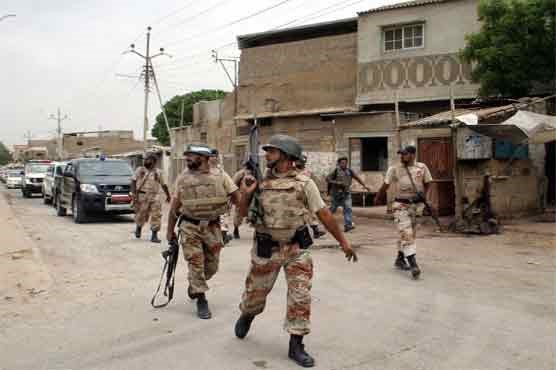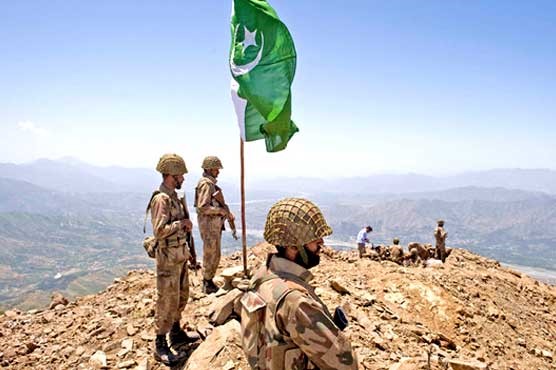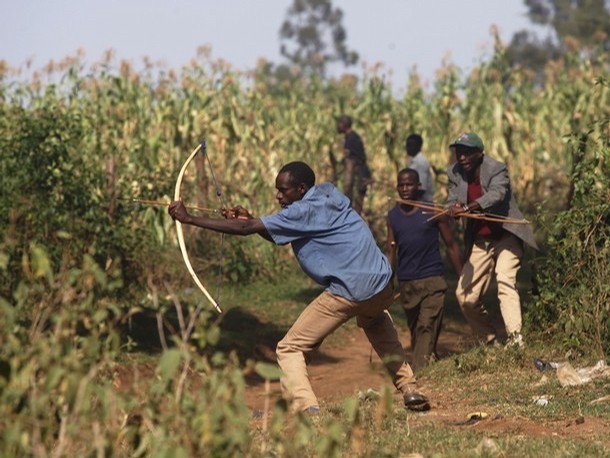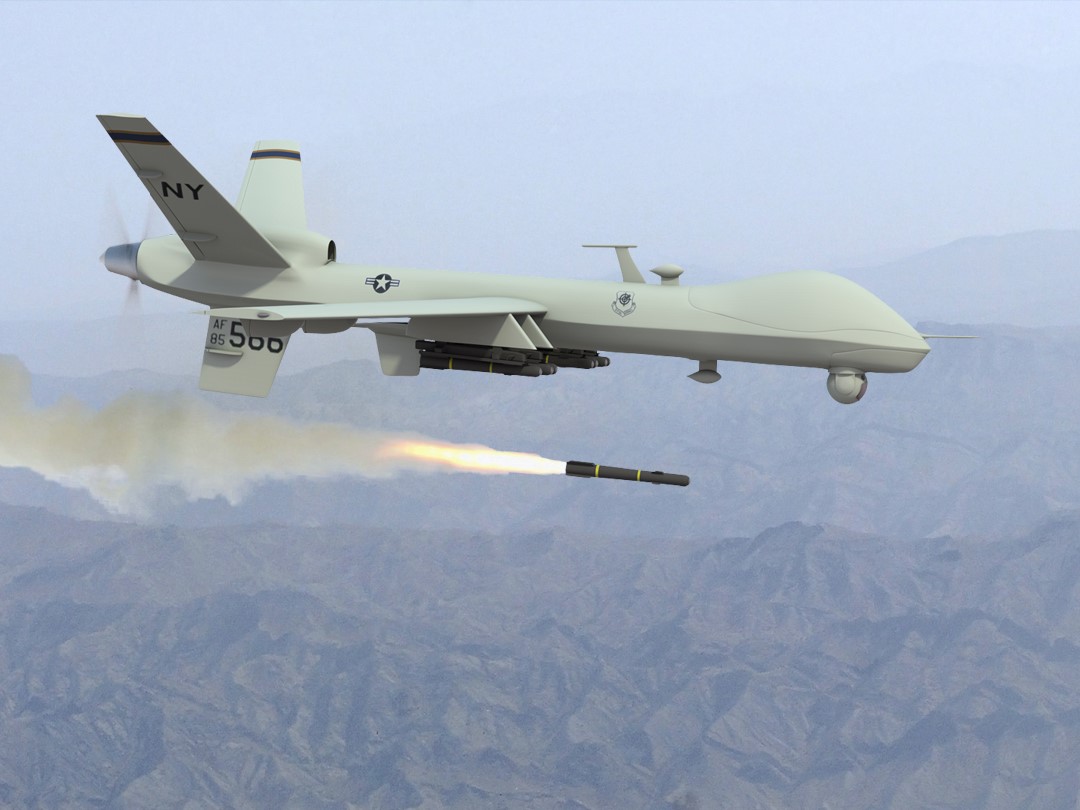Andrew McGregor
October 30, 2009
Pakistani security forces have announced the arrest of Akhtar Zaman Mahsud, the alleged Amir of the Karachi branch of the Tehrik-i-Taliban (TTP) as part of a major sweep of terrorist suspects in the strategically important port city.
 Pakistani Security Forces during Operations against TTP Militants in Karachi
Pakistani Security Forces during Operations against TTP Militants in Karachi
Security forces claimed Akhtar Zaman was arrested in Karachi’s eastern suburb of Sohrab Goth following an October 18 shootout with police. However, some police sources and members of the largely Pashtun Sohrab Goth community insisted Akhtar Zaman was actually arrested in a raid on a supermarket on September 14 (The News [Islamabad], October 21; PakTribune, October 20). The alleged TTP commander and three others arrested with him (including Samiullah, a.k.a. Shamim, Fazal Kareem and Munawar Khan) were charged with involvement in an unsuccessful attack on the Kemari Oil Terminal on the night of September 14. One Islamabad daily quoted an anonymous senior police source as saying, “If we produce an accused before the court after 24 hours of his arrest, it becomes a case of habeas corpus, so normally police show the arrests of accused a day prior to their production in the court” (The News, October 21).
A police official said the suspects also wanted to plant explosives in police installations and other sensitive points in Karachi. According to police, the men were armed with 75kg of cyclotrimethylene-trinitramine (RDX) explosives, three Kalashnikov assault rifles and a TT-model pistol, commonly used as a police sidearm in Pakistan but also made by the gunsmiths of the Khyber region. The seizure followed a larger one last week, which netted two suicide jackets, four Kalashnikovs, 17 hand grenades, nine detonators and a variety of ammunition for mortars, RPGs and rifles. Police claim these weapons belonged to the same Karachi cell of the TTP (Daily Times, October 19).
Further raids by the Crime Investigation Department (CID) of the Sindh police on October 21 resulted in the arrest of Muhammad Sahib Khan (a.k.a. Qasai) in Sohrab Goth, as well as two accomplices in other parts of the city. According to police, Muhammad Sahib Khan confessed to being tied to a Swat-based TTP commander named Farooq. He was found in possession of a suicide vest and was already wanted by police for involvement in murders, assassinations, kidnappings and attacks on security services. Police charged Muhammad Sahib Khan and his accomplices with “trying to establish a Taliban network in Karachi,” as well as “plotting terrorist activities, including suicide bombings.” They were also accused of destroying schools in the Swat valley (The News, October 21; Dawn [Karachi], October 21).
According to Pakistan’s Daily Times, some 60 second-level Taliban leaders evaded the government’s offensive in Swat earlier this year by traveling by train in small groups to Karachi, where the Karachi TTP arranged for their transit by plane to various points in the Gulf states (Daily Times [Lahore], October 19). The transfer went unnoticed because many natives of Malakand work in these same Middle Eastern states.
Mahsudi tribesmen who have fled the turmoil in their native South Waziristan for Karachi suburbs like Sohrab Goth report shakedowns by local police who threaten to arrest them as TTP members, as well as marginalization by government agencies on the basis of ethnicity, which local elders claim threatens to drive peaceful Mahsudis into the arms of the Taliban (The News, October 21). Army Chief of Staff Ashfaq Pervez Kayani took the unusual step of writing an open letter to the Mahsud tribe, assuring them that the current operations in South Waziristan were aimed only at terrorists rather than the tribe as a whole (The Hindu, October 19).
Though it lies over 1,000 miles from the military operations in the tribal regions of northwestern Pakistan, the port of Karachi has become a target of Taliban and al-Qaeda associated militants since April, when members of the Lashkar-e-Jhangvi (LeJ) terrorist group were detained while planning attacks on local transportation firms responsible for shipping supplies destined for NATO forces in Afghanistan. A campaign of threats and bombings is intended to disrupt the NATO supply chain, which relies on Pakistani companies and drivers to transport supplies along the 1,200 mile route from Karachi to the Khyber Pass. Karachi, the starting point of the route, was once regarded as a safe port, but recently it has been subject to infiltration by Taliban and al-Qaeda sabotage units. Earlier this month security forces arrested five members of the Lashkar-e-Jhangvi (LeJ) terrorist group who were planning attacks on transportation firms responsible for shipping NATO supplies to Peshawar. This followed a similar roundup of militants last January after they threatened transporters not to carry NATO supplies.
The new Karachi Taliban leader, who gave an interview to the Daily Times on condition of anonymity, said the local TTP chapter was in accord with the ideology of TTP leader Hakimullah Mahsud but was not authorized to carry out operations (Daily Times, October 19).
This article first appeared in the October 30, 2009 issue of the Jamestown Foundation’s Terrorism Monitor



